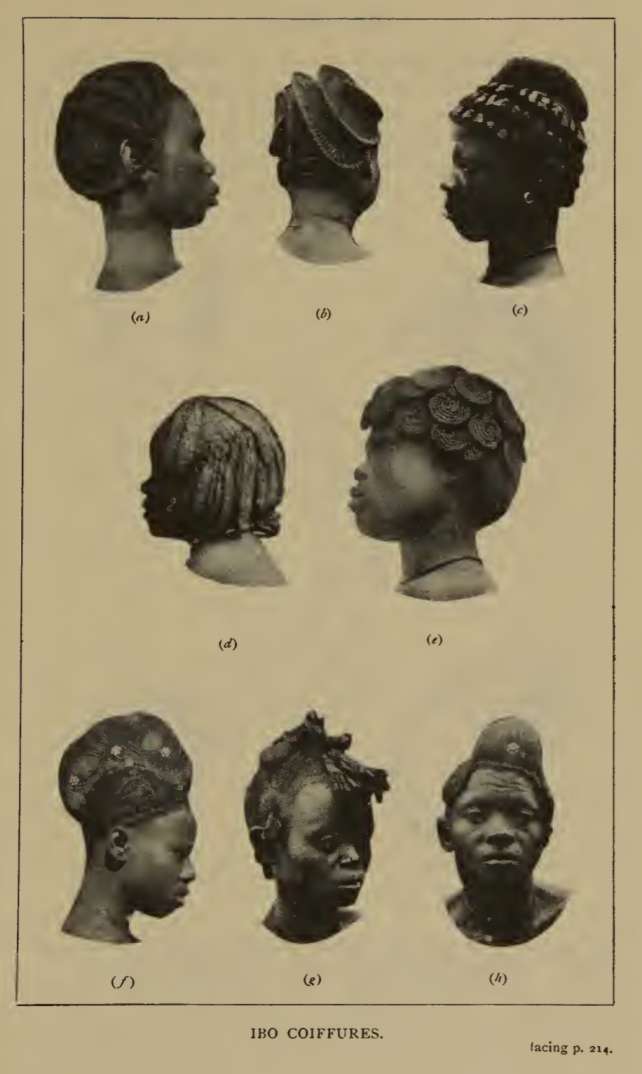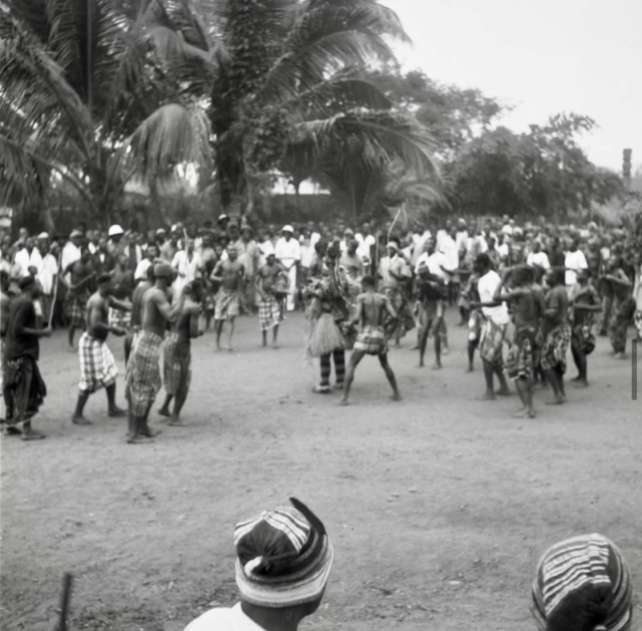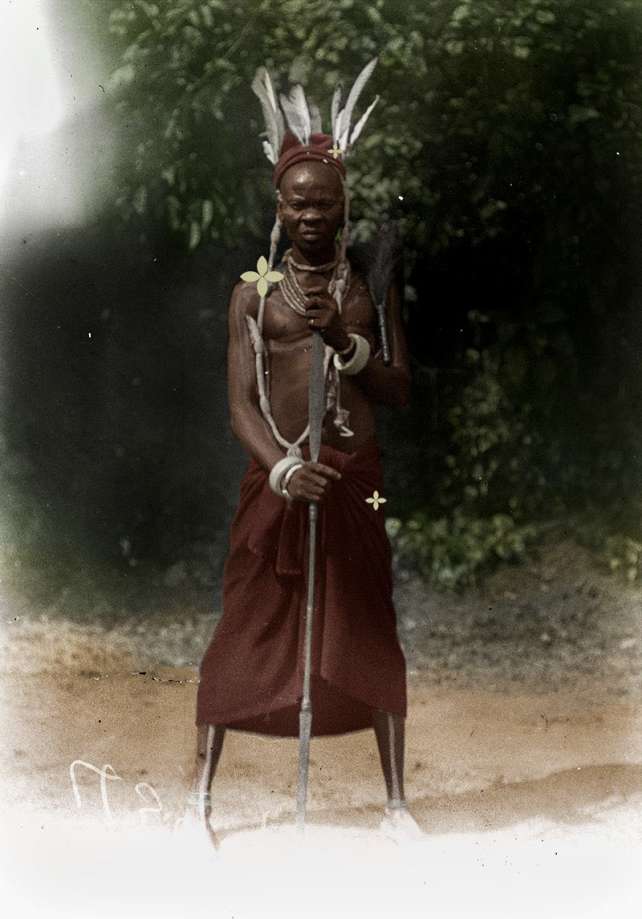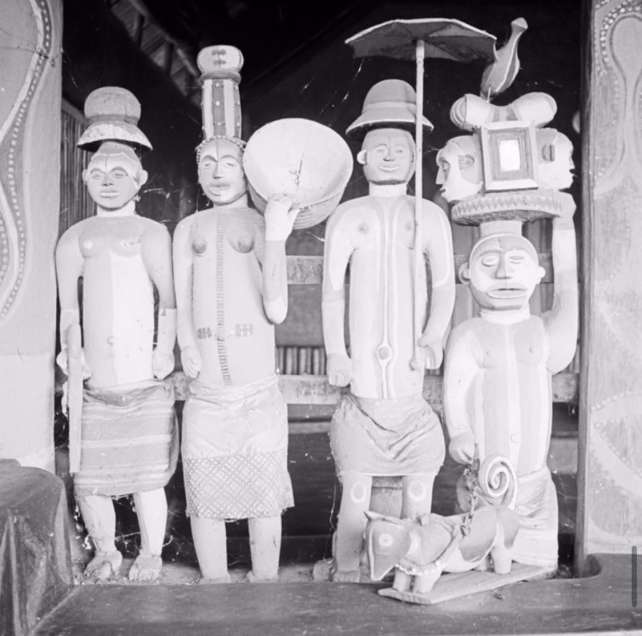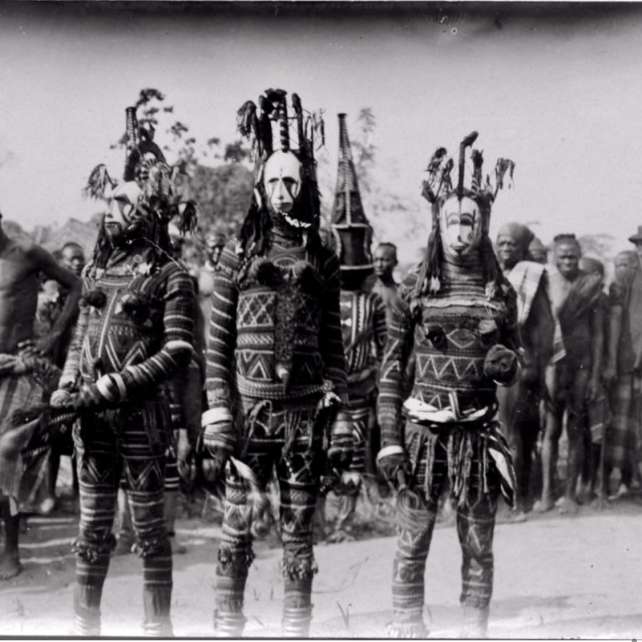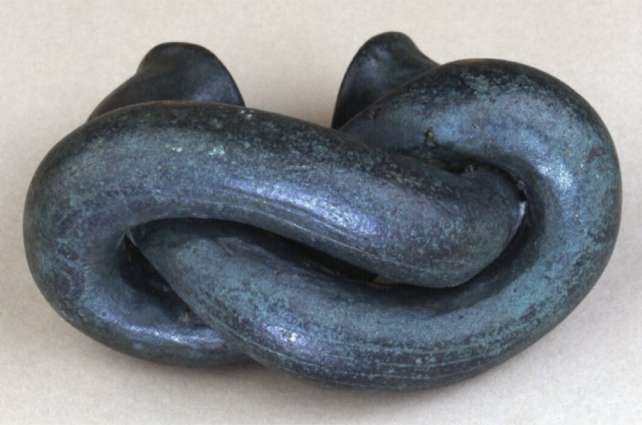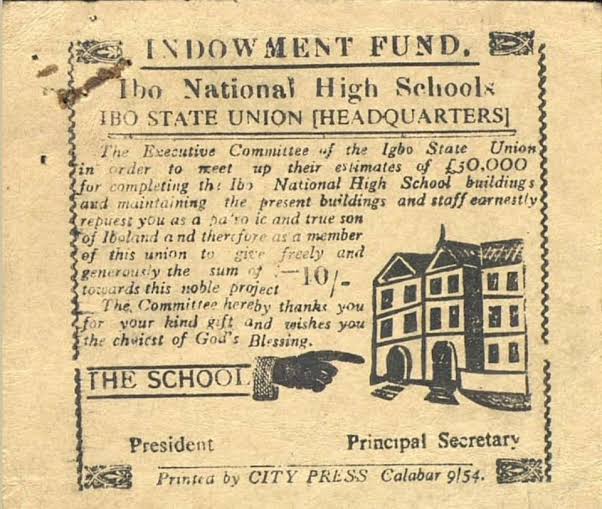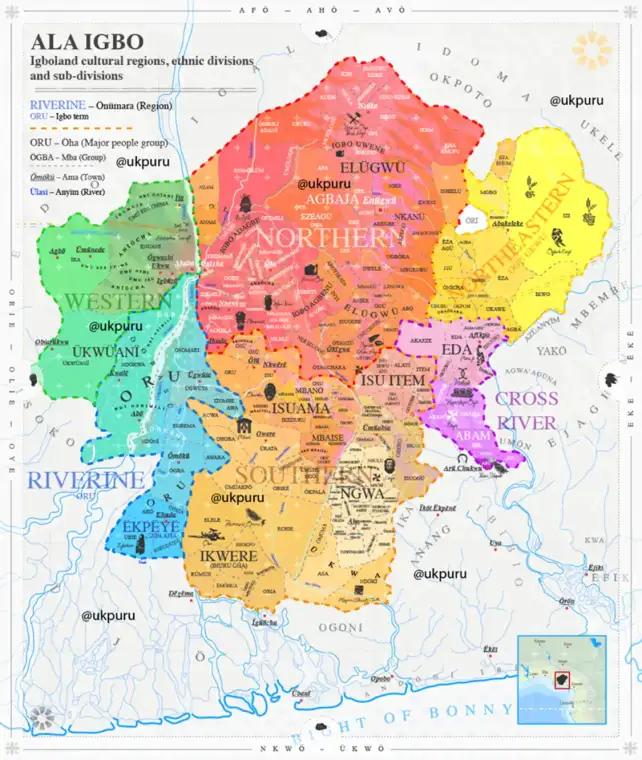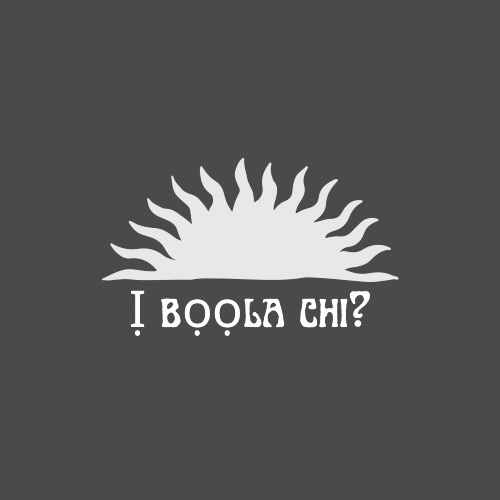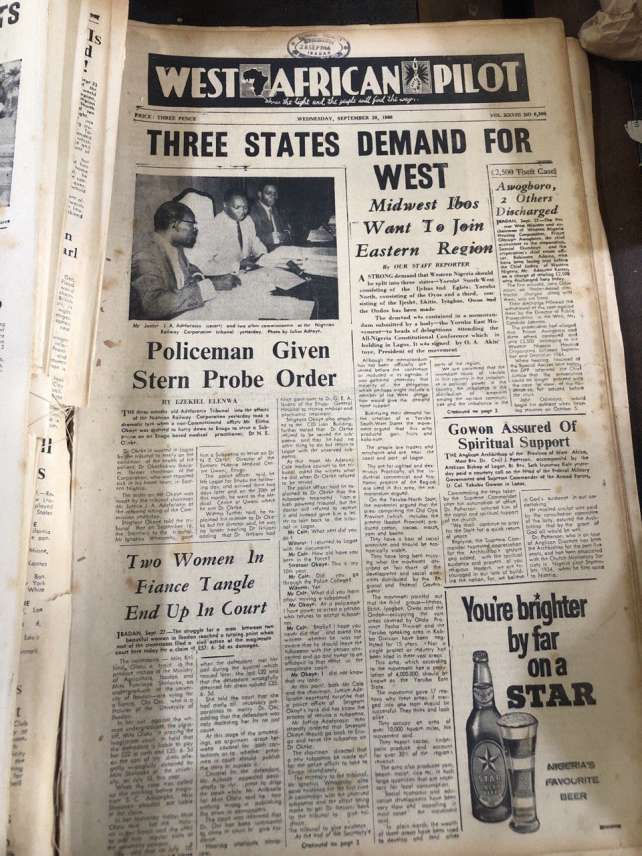"Ibo Coiffures" Photo: Tribes of the Niger Delta - P.A. Talbot, 1910s.
Igbo coiffures have a rich cultural and historical significance, often symbolizing status, age, marital status, and even spiritual beliefs. Here are some key traditional Igbo hairstyles:
1. Isi Ogo (Chief’s Hair): This is an elaborate style traditionally worn by Igbo chiefs or people of high…
